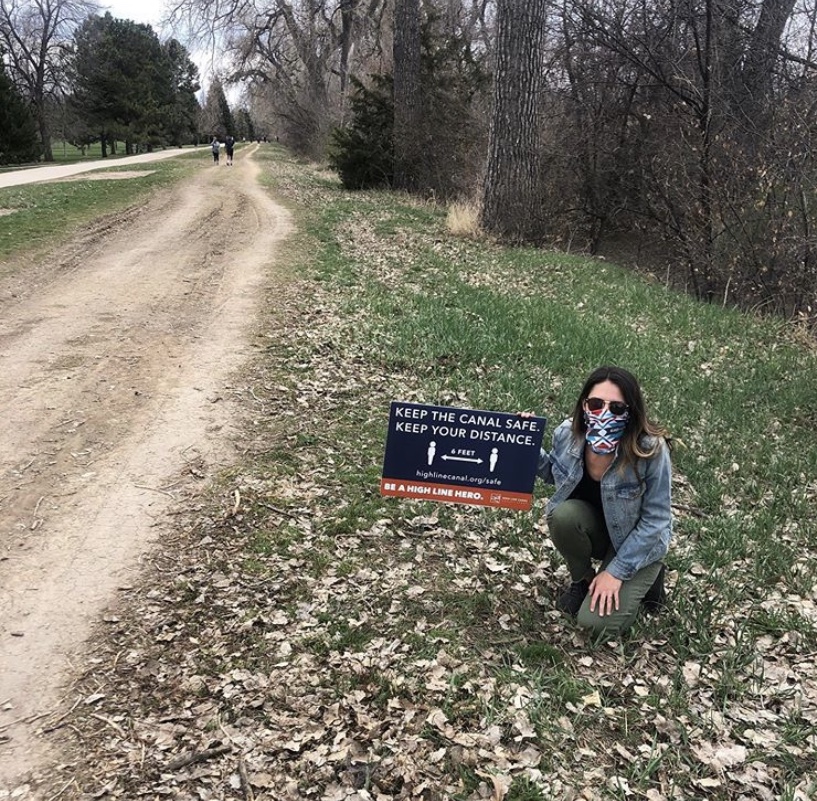Editor’s note: Due to the ever-changing updates around COVID-19, details included in this story may have since been altered.

In short, our lives have been turned upside down in ways that were simply unimaginable just 40 days ago. And within this last month and a half, we’ve spent a lot of our time reading about it—the effects of COVID-19—on a larger scale. Recent local news coverage has mainly focused on the Denver metro area and Colorado in general, but the pandemic has left no part of the state unscathed—and has impacted us all differently. For those who have been looking for a health report on the south suburbs—the place we all call home—consider this your one-stop shop.
Besides gathering the stark facts, we asked local health, civic and business leaders to share their view on how the novel coronavirus is specifically impacting our neighborhoods. They offer some glimmers of hope and tough facts about what the “next normal” might look like.
THE HARD FACTS
On March 5, the Tri-County Health Department (TCHD) was notified of its first positive COVID-19 case. As of April 20, department data shows there have been 2,818 reported positive cases of COVID-19, determined through the limited testing available: 915 in Adams County, 1,519 in Arapahoe County, 361 in Douglas County and 23 in “pending” locations. Broken down within our areas, that includes 152 cases in Centennial, 20 in Lone Tree, 16 in Greenwood Village, 10 in Cherry Hills Village and four in Castle Pines. Nearby Aurora has 1,127 cases.
Tragically, the department confirms that COVID-19 deaths include 34 in Adams County, 68 in Arapahoe County and 19 in Douglas County. However, TCHD warns that these numbers may not represent all pandemic-related losses. (TCHD data—which includes local COVID-19 cases defined by age and ethnicity, as well as hospitalizations—is updated daily here.)
TAKING THE PULSE OF THE TRI-COUNTY’S HEALTH
“We are cautiously optimistic at this point,” says John Douglas Jr., M.D., executive director of the Tri-County Health Department, on April 16. “Social distancing efforts seem to be paying off. There has been some flattening of the COVID-19 curve in cases and hospitalizations. However, we hear a lot of concerns about having sufficient personal protective equipment (PPE) from health care facilities. Everyone is scrambling to find PPE. We are also focusing attention on all long-term care facilities as data comes out about the increasing number of cases.”
Testing has continued to be in a bit of a bottleneck. “A big part of the problem has been getting the supplies to do and process the tests,” says Dr. Douglas. “We know we’ll have to do a lot of testing if we are going to be sensible about opening businesses and society.”
And Dr. Douglas is urging realism in regard to what the future holds: “We’ll be engaging in social distancing and the other practices for the foreseeable future—things like wearing a mask should be part of our expectations for the next 18 months. We should think of this as a war that we are all in together. … There will be additional outbreaks in the tri-county area in the coming year. It will get better, then worse as is spikes, and then better again.”
HOW LOCAL COMPANIES ARE TRYING TO GET DOWN TO BUSINESS
“Our small business community has been devastated by this situation,” says Dennis Greene, executive director of the DTC | Greenwood Village Chamber of Commerce. “We are working with our restaurant community, for example, but it is difficult for a company when you lose 90 percent of your business.”
That said, a recent limited survey of Chamber members indicated that while many were extremely concerned about staying in business, “no one is closing their doors,” Greene says. Instead, owners are doing everything they can to temporarily flip their business models—like we have all seen from shops and restaurants like Indulge Bistro and Wine Bar, which has transformed its Centennial, Highlands Ranch and Golden locations from eateries into neighborhood grocery stores.
For long-term help, the Chamber is focused on assisting members and all local businesses slog through the paperwork to access available assistance, including Small Business Administration grants and loans and the state’s relief fund (which is offering $25,000 grants to eligible community-based organizations).
Overall, Greene is calling on his background directing helicopters that were delivering aid during Hurricane Katrina to inspire ways the Chamber can fight for and with local companies: “We have formed strong relationships with leaders at state agencies and within the state government that are helping right now.” And a partnership between the Chamber and Greenwood Village has eased restrictions so businesses can erect temporary signs advertising, for instance, curbside pickup.
A LITTLE LOOK INSIDE GREENWOOD VILLAGE
Colorado’s stay-at-home order is set to end April 26, while Denver’s stay-at-home order is scheduled to end April 30. On April 20, Gov. Jared Polis announced new information on the gradual reopening of businesses in Colorado. All area schools also remain closed.
As such, since March 16, Greenwood Village has seen a 60 percent decline in vehicle traffic and a revenue shortfall that will have future impacts, according to Greenwood Village City Manager John Jackson. Greenwood Village is in relatively good shape in terms of PPE, however. This is, in part, thanks to Jackson’s background as the former police chief of the village. “Starting in February, we began sourcing PPE and cleaning supplies when we saw this was coming,” he says. “And we take a general strong approach. If any essential employee comes in with any symptoms, we are sending them to quarantine at home until we can prove they are not sick.”
Overall, Jackson is seeing positive signs for the city. “But we’ll be living with this for a while,” he says. “Opening up Greenwood Village will not be like flipping a light switch. It will be gradual and only when it’s responsible to do so.”
MOST IMPORTANTLY, HERE’S WHAT YOU CAN DO TO HELP
Fighting the pandemic largely means staying the course with those new, awkward skills you and your family have been practicing:
- -Stay home when possible.
- -Maintain social distancing when in public.
- -Wear a non-medical, cloth mouth covering when you are outside the house and anywhere near other people.
- -Wash your hands often and thoroughly (thoroughly means at least through the first verse of Rocky Mountain High).
- -Avoid large gatherings. (You can report social distancing violations to the Tri-County Health Department by calling 211 or 303.220.9200.)
It is also imperative, however, to donate items, funds and, if you are healthy, time to critical causes. A few outlets to consider:
- -Make a contribution to a local food bank. High unemployment means widespread food insecurity.
- -Visit HelpColoradoNow.com, which directs donations, lists volunteer opportunities and more.
- -Donate blood if you are healthy.
- -Shop and eat local! We have more than a little help with this one: As restaurants, bars and other food-related businesses work to remain open, city governments have banded together to support local eateries by compiling full lists of places that are still serving.


